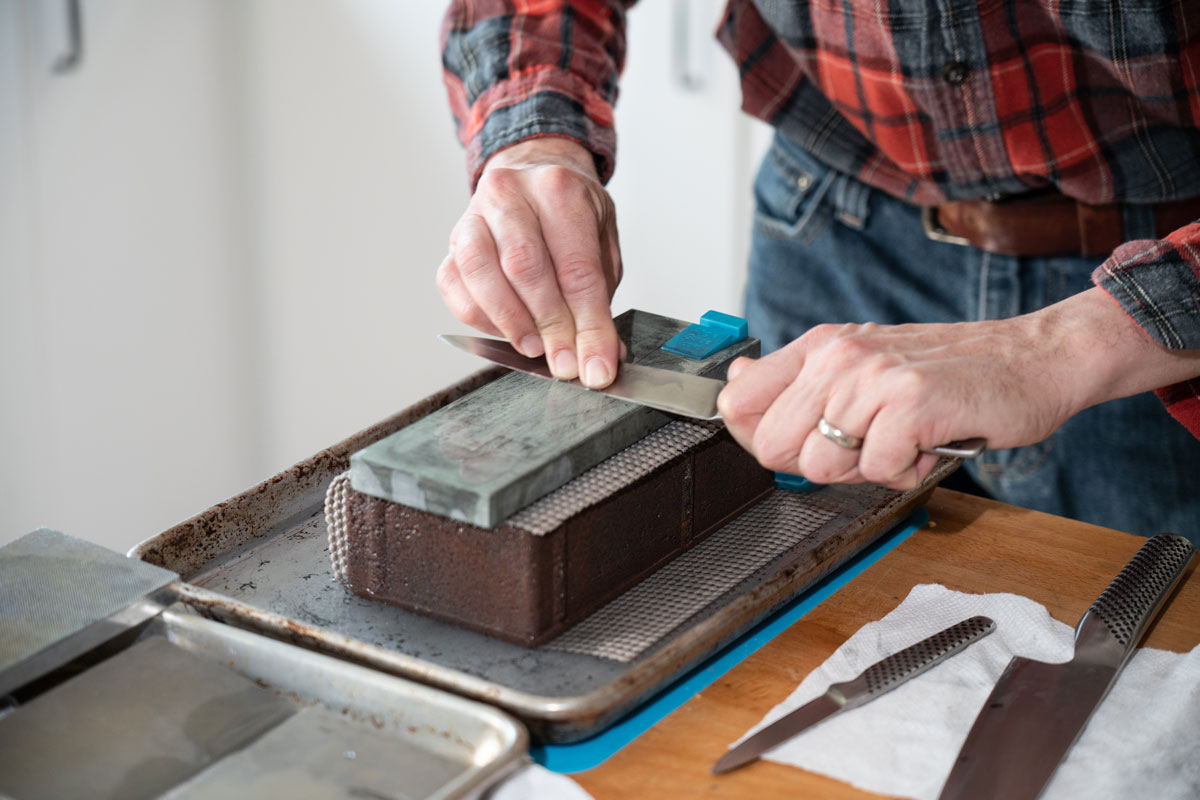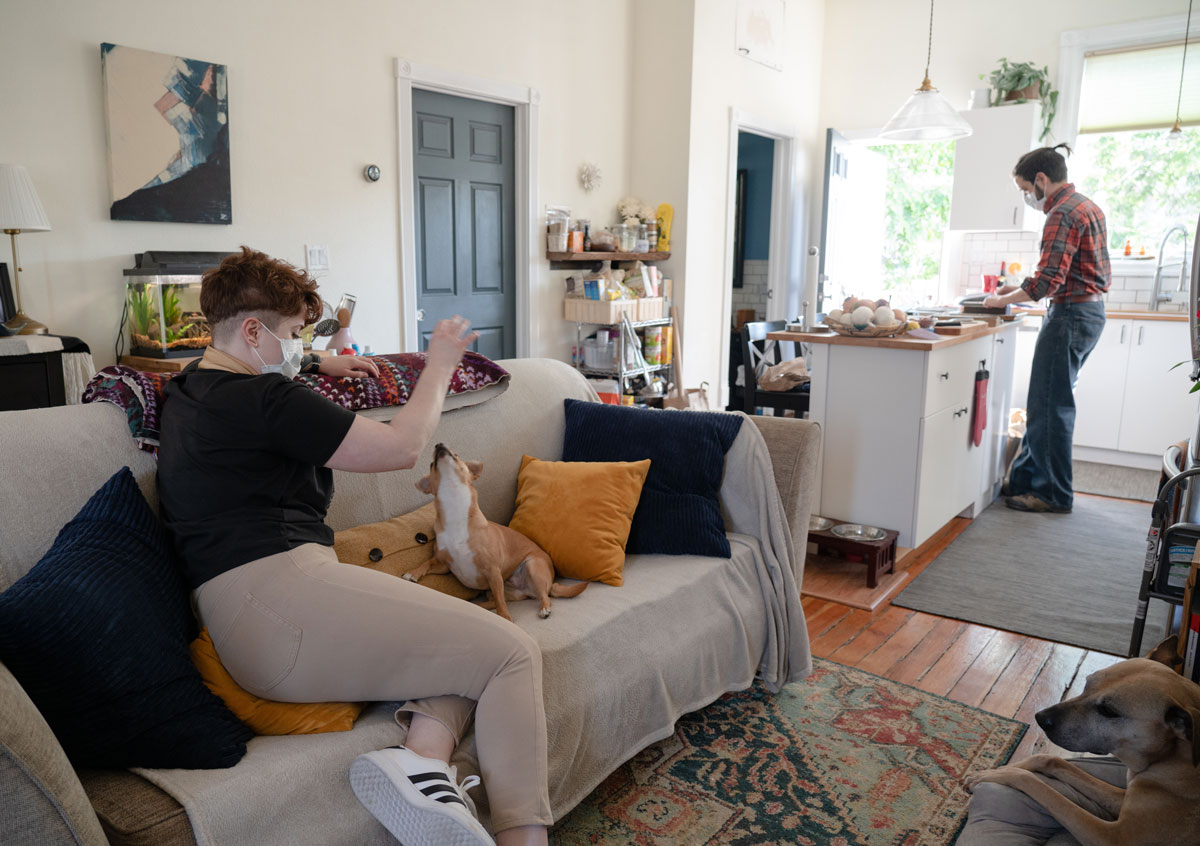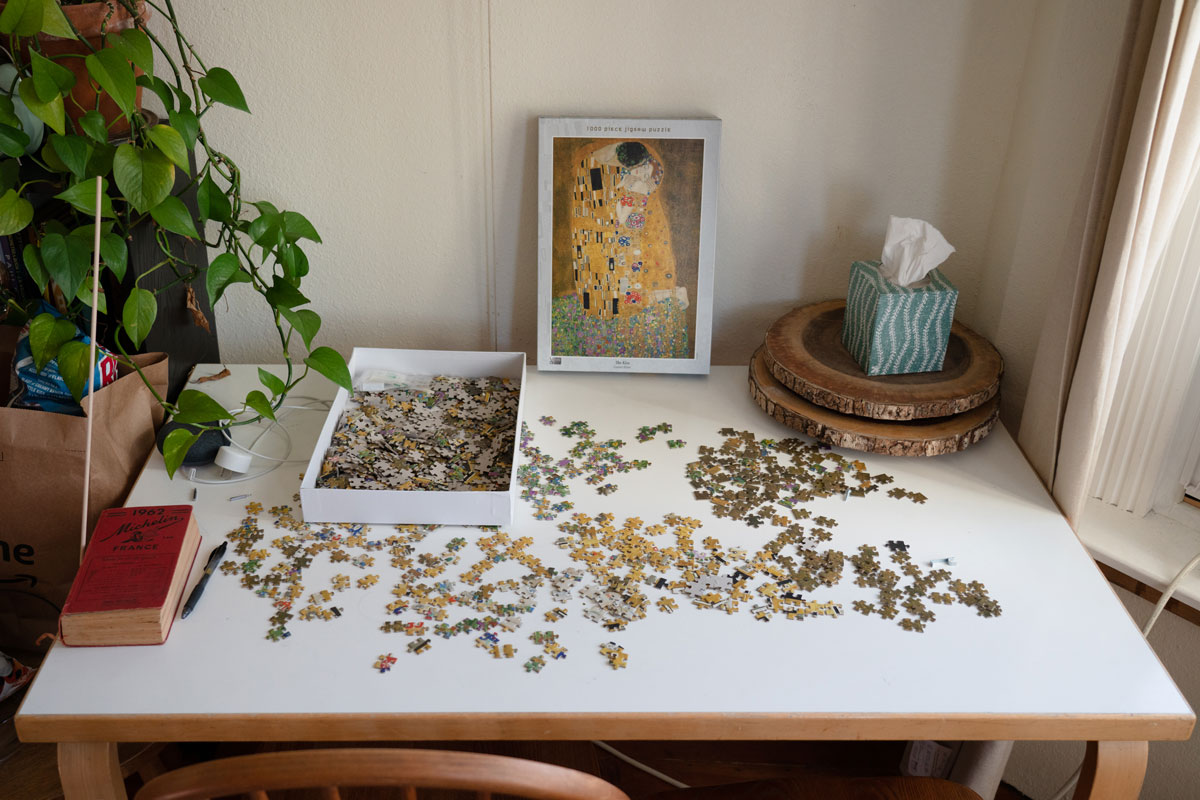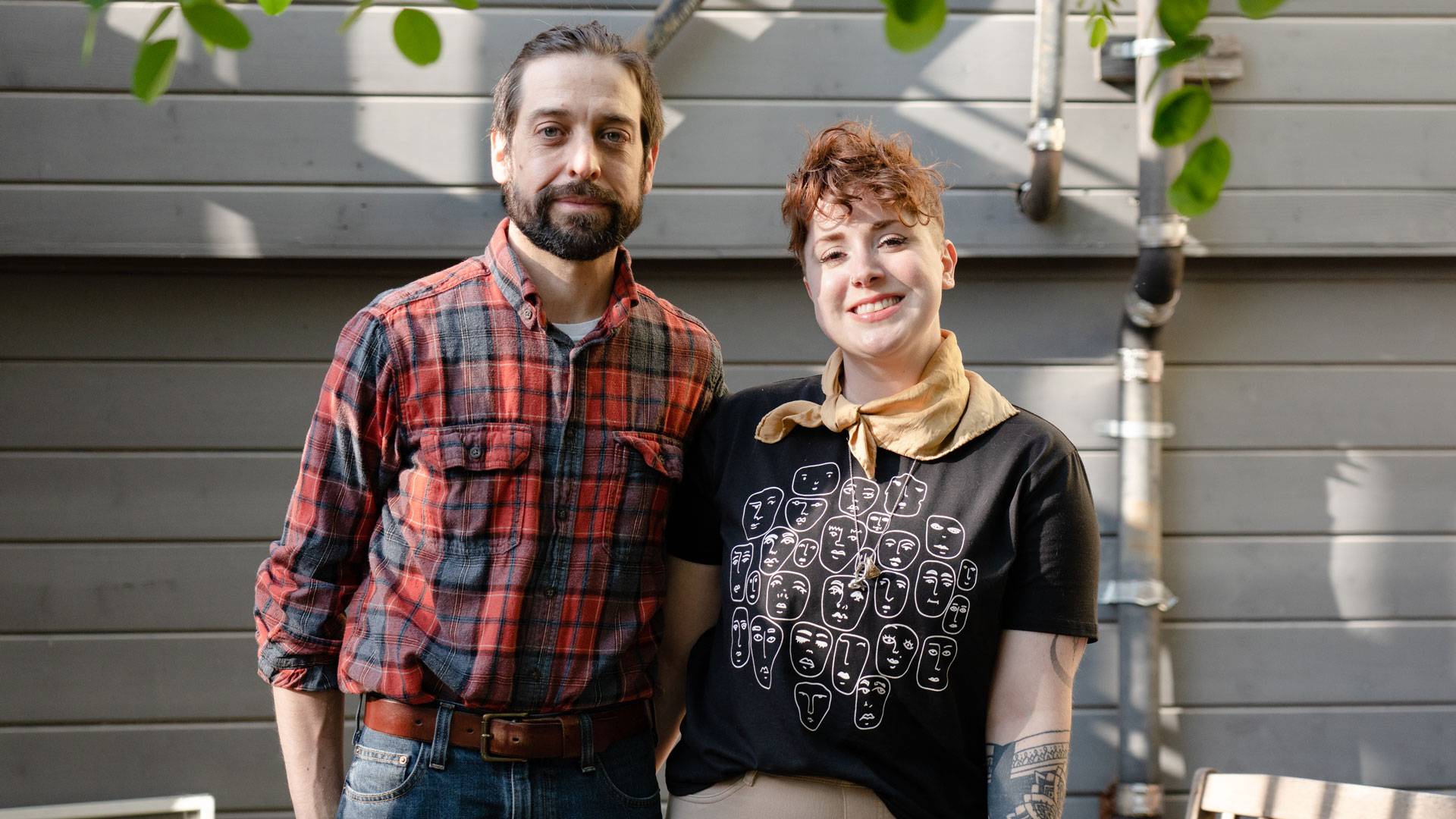Ryan Taylor’s pitch for using sharpened knives is straightforward and convincing. “The experience is just so much more pleasant,” he says. “I recommend it to everybody.”
During Shutdown, Sharpening Knives Helps a Restaurant Worker Pay the Bills
The West Oakland resident is part of a growing population of restaurant workers who have turned their hobbies and skill sets into side hustles to weather the financial impact of the coronavirus pandemic. Together with his wife, Andrea Taylor, Ryan launched Ry’s Knives on April 25, a hand knife-sharpening service for East Bay residents wearing out their blades with all that home cooking.
“Most of the sharpen-while-you-wait services are going to be somebody taking it to a mechanical grinding wheel,” Ryan explains. In contrast, his method uses five different sharpening stones, and takes him 20–30 minutes a knife. “It’s the best for a knife. It removes the least material,” he says.
Ryan honed his skills (apologies, the knife sharpening business is rife with punning opportunities) during his earliest days in the restaurant industry. In his first job as a busboy, he learned to sharpen knives from a friend in the kitchen. “I’d always been interested in food and I’d cooked a lot in homes, but it was cool to see somebody carry out that skill,” he says.

Sharpening knives remained a private practice, something he did for friends and family as he moved through various positions and establishments in the Bay Area restaurant scene. Ry’s Knives is the first time he’s turned those skills into a moneymaking enterprise.
That’s because until March 19, Ryan was making between $85,000 and $90,000 a year as a captain at Lazy Bear, a two-Michelin star restaurant in the Mission that specializes in high-end tasting menus presented in a communal, dinner-party setting. As a server, Ryan says his job is to be “as passionate as possible about the products, and convey that to guests.”
While Lazy Bear is no longer open for dinner service, the restaurant has transitioned into a commissary-style storefront, selling breakfast, lunch, coffee, cocktails, wine and pantry items. Ryan says there’s lots of work to do to support this new business model, even for front-of-house staff.
But the Taylors decided, after serious discussion, to self-isolate and remain home. The couple met in the food-service industry, but now only Ryan remains in the field. “If we were both still working in the restaurant industry, it wouldn’t even have been a conversation,” he says. “If there was work to go to, we would have gone to it,” she agrees.

Before the pandemic, Taylor made San Francisco’s minimum wage of $15.59 an hour, but received additional income from the 20% service fee applied to each diner’s bill (in lieu of tips). Aiding their decision to stay at home was the fact that Lazy Bear offered to keep Ryan on payroll anyway, in a gesture of almost unheard-of goodwill. Ryan is extremely thankful this is the case; he’s being paid $18 an hour for a 40-hour phantom work week. It’s unclear, however, just how long Lazy Bear can sustain this arrangement. Ryan says they’ve started talking about furloughs. He’s volunteered to take one, and the restaurant has vowed to maintain his health insurance.
The Taylors have kept above water during the pandemic thanks to Andrea’s job, family support and the newly added income from the knife-sharpening business. Andrea works full-time as an administrator at the Lawrence Berkeley National Laboratory and is about halfway through a master’s degree in public administration at USF. She’s been able to continue both remotely and help Ryan with Ry’s Knives. (She set up the website and oversees a spreadsheet to coordinate quotes, orders, pick-ups and drop-offs.) “My skill set lies in organizing and prompting action,” she explains.
Ry’s Knives now brings in about $150–$200 a day. “It’s tight, but it’s enough to make it work,” Ryan says. His family helped the couple by paying the $1,500 mortgage on their home the past two months. Their other remaining expenses are utilities ($900 a month) and property tax ($500 a month). A few months ago they would have listed “going out” as a major expense, but the pandemic put a stop to that.

Ryan estimates the equipment he uses to sharpen knives cost him between $1,500 and $2,000, money he spent long before this side business was a glimmer in his eye. “We’ve been kind of figuring it out as we go,” Ryan says. “It’s been interesting trying to transition to doing dozens of knives a day for customers.” He says his shoulders are getting a bit of a workout.
While their pricing is fairly competitive with sharpen-while-you-wait services, Ryan notes an increased demand might necessitate a reevaluation of just how time-consuming the process of hand-sharpening really is (especially for serrated blades). If the opportunity arises to safely return to Lazy Bear, Ryan says he would definitely let Ry’s Knives fall by the wayside.
“I love the restaurant business and I’ve always had a soft spot for the enthusiasm and passion Lazy Bear, in particular, brings,” he says. “It’s an amazing experience. I think it’s just so heady and intoxicating and I look forward to being able to provide something like it again.”
In the meantime, those wondering if their neglected knives might be too far gone for even Ryan’s attentions, rest assured: “If there’s still metal left on it, you can pretty much do something with it.”


